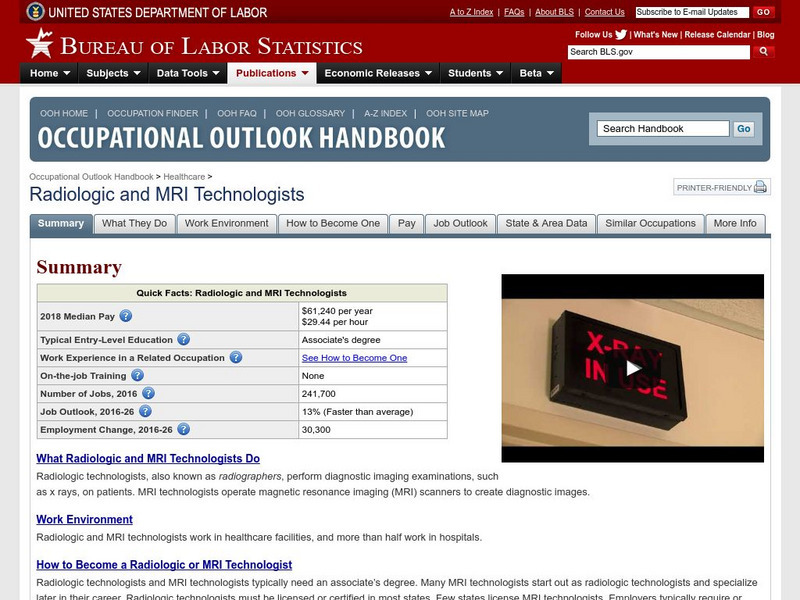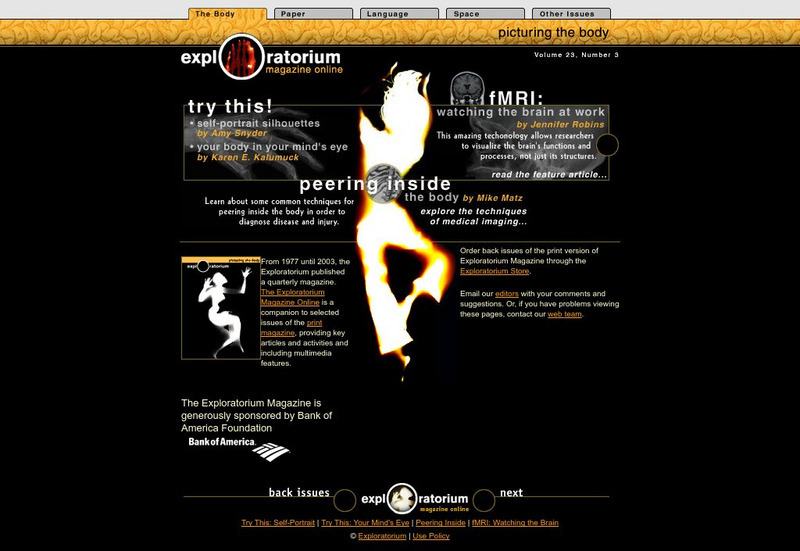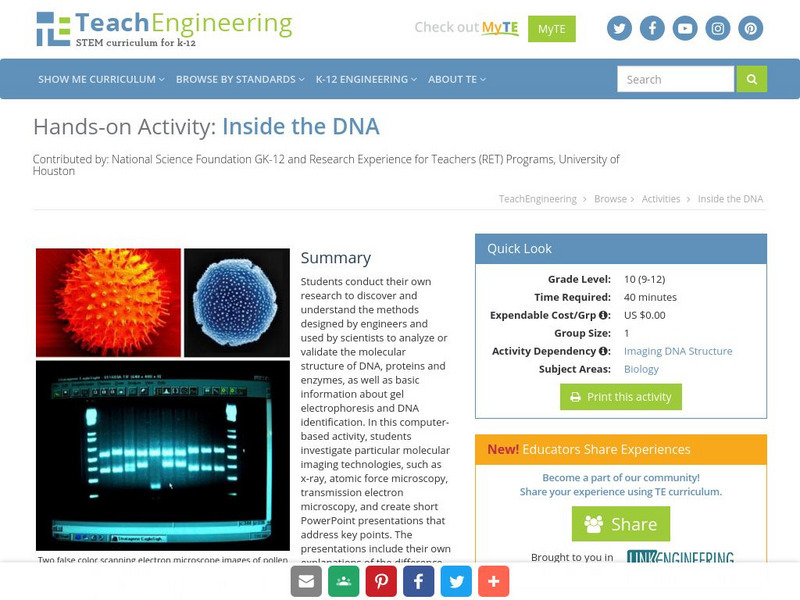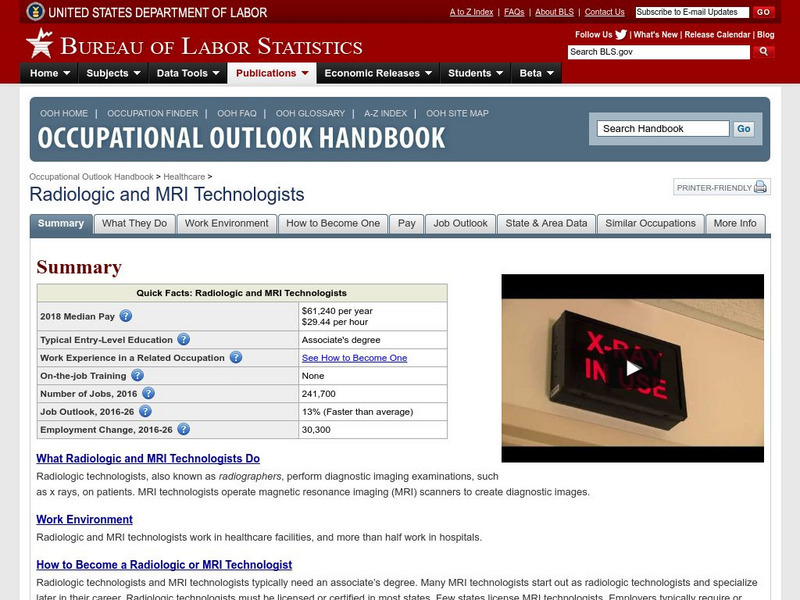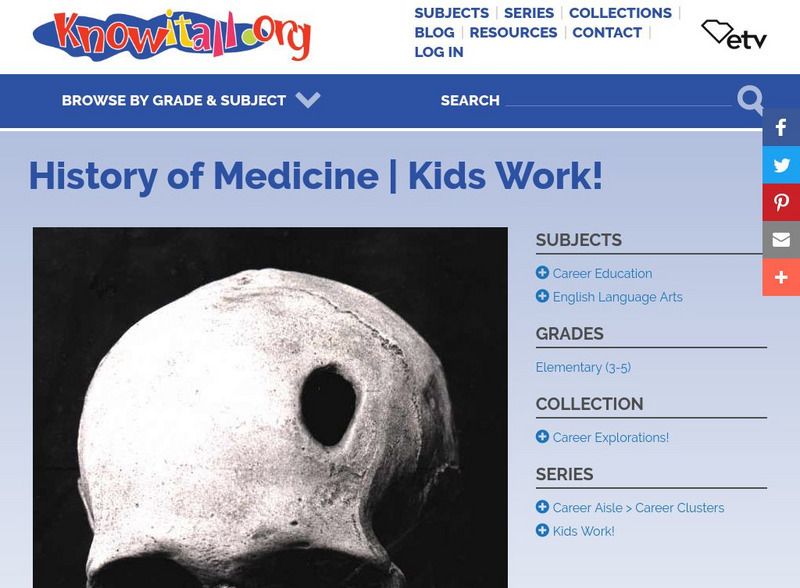Curated OER
Knowledge Quiz
In this oceans quiz worksheet, students complete a 10 question multiple choice quiz covering a variety of concepts related to the ocean.
Curated OER
Sunspots: Correlating Sunspots to Active Regions
Students investigate sunspots. They use solar imaging from satellite instruments which are currently circling the sun. Students compare images from the satellites and determine the existence of a correlation between the two types of...
Curated OER
Biotechnology
Students are introduced to the topic of biotechnology. Using the internet, they research issues that have been improved or brought about because of biotechnology advancements. In groups, they participate in activities in which they...
Curated OER
Batlik- Art of Japan
Eighth graders will examine the use of Japanese ar tforms. The paper lantern is the example drawn from for learners to connect with the culture. The end result is a creative project that should reflect the culture of Japan.
Curated OER
Video Games Day
In this video games day instructional activity, students read or listen to a passage, then match phrases, fill in the blanks, choose the correct words, unscramble words and sentences, write discussion questions and conduct a survey.
Curated OER
Represent Rational Numbers
Students identify expanded notation and scientific notation. In this rational numbers instructional activity, students use a calculator to discover the powers of 10. Students practice writing numbers in expanded notation using powers of...
Emory University
Emory University: Something About X Rays for Everybody
A summary of a century of research regarding X-rays. Discusses the discovery and applications of X-rays. Includes some ideas for exploring and investigating X-rays.
University of Colorado
University of Colorado: Physics 2000: Cat Scans: Projecting Shadows
This page and the three pages which follow discuss how X-ray technology can be used to produce an image of the human body. Discussion is understandable and highly intriguing. Several interactive animations allow the visitor to explore...
Science Museum of Minnesota
Science Museum of Minnesota: Lessons: X Rays
Lesson that teaches about X-rays and how they are used in diagnosing ailments of the heart and lungs.
University of Colorado
University of Colorado: Physics 2000: X Rays
Here's a really simple demonstration of a fluoroscope. There are links to more information about the uses of X-rays as well.
Other
Translating Virtual Reality Into Physical Reality
A fascinating site which demonstrates the application of X-ray technology and other medical imaging techniques. Site explores how CT scans can be used to create models of the human body. Several pages with incredible graphics and...
Lawrence Berkeley National Laboratory
Berkeley Lab: The E Xperiment Files
Discussion of the scientific method and the use of X-ray microscopy as an experimental technique. Explains the use of X-ray microscopy in the study of malaria.
Cosmo Learning
Cosmo Learning: Applied Science and Technology 210: Electrical Engineering
A collection of video lectures from a course that explores the application of electrical engineering topics. Webpage includes twenty-eight lectures from a professor at the University of California, Berkeley. Lectures vary in length and...
US Department of Labor
Bureau of Labor Statistics: Radiologic Technologists
A very informative site describing the profession of radiologic technologist/technician. Contains sections on nature of the work, working conditions, employment opportunities, qualifications, job outlook, and earnings.
Lawrence Berkeley National Laboratory
Berkeley Lab: Micro Worlds Project: Advanced Light Source
A discussion of the Advanced Light Source (ALS) facility and its use in material analysis and medicine.
Exploratorium
Exploratorium: Picturing the Body
An online version of articles and activities from the Exploratorium Magazine, Vol. 23, No. 3. This issue looked at how we are able to examine the inside of the human body, what kinds of technology are used, and how each of them is used...
TeachEngineering
Teach Engineering: Inside the Dna
Students conduct their own research to discover and understand the methods designed by engineers and used by scientists to analyze or validate the molecular structure of DNA, proteins and enzymes, as well as basic information about gel...
US Department of Labor
Bureau of Labor Statistics: Radiologic Technician
Published by the Department of Labor, this site details the Radiologic Technician Career. Employment outlook, and projections are provided with training and qualifications data.
Curated OER
Educational Technology Clearinghouse: Clip Art Etc: Wilhelm Rontgen
(1845-1923) German scientist she produced and detected electromagnetic radiation in a wavelength range today knob as X-rays or Rontgen rays, an achievement that earned him the first Nobel Prize in Physics in 1901.
Curated OER
Educational Technology Clearinghouse: Clip Art Etc: William Roentgen
A German physicist, of the University of Wurzburg, who, on Nov. 8, 1895, produced and detected electromagnetic radiation in a wavelength range today known as x-rays or Rontgen Rays.
National High Magnetic Field Laboratory
Magnet Academy: Nikola Tesla
Awarded more than 100 patents over the course of his lifetime, Nikola Tesla was a man of considerable genius and vision. He was reportedly born at exactly midnight during an electrical storm, an intriguing beginning for a man who would...
WebMD
Medicine Net: Computerized Axial Tomography
This site from MedicineNet.com gives a CAT Scan description, why they're performed, risks, and patient preparation. A thoughrough explanation of the process is provided.
A&E Television
History.com: 7 Groundbreaking Inventions by Latino Innovators
From entertainment devices to lifesaving medical technologies, Latino inventors have advanced humankind through their contributions. Latino inventors have created revolutionary devices that have transformed our everyday world - and often...
South Carolina Educational Television
Etv: Kids Work! History of Medicine
A brief history of medicine told in five snapshots of time: ancient times, the Middle Ages, the Renaissance, the early modern period (eighteenth and nineteenth centuries), and modern times.











